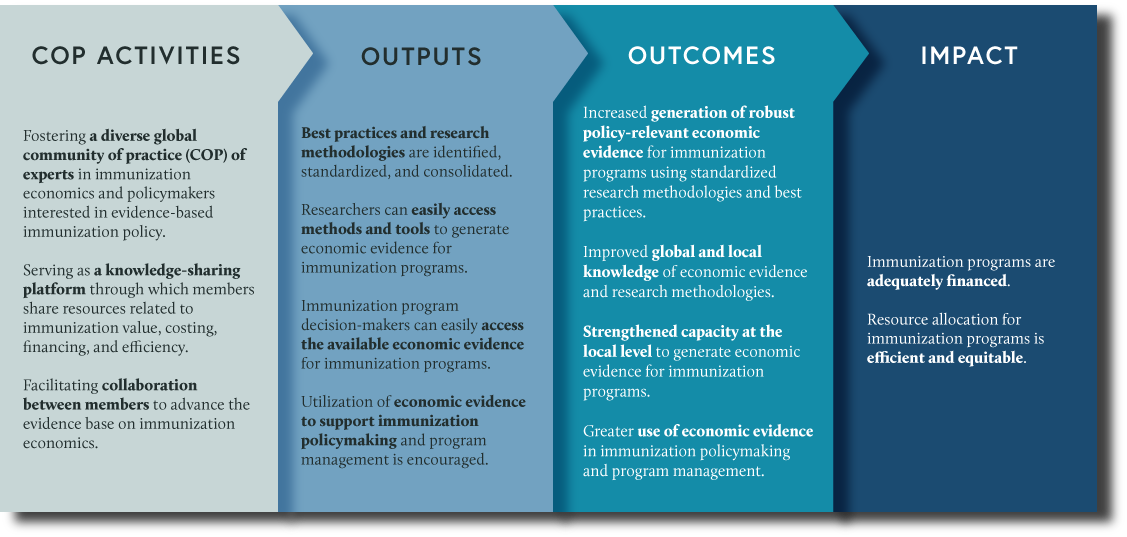About the Immunization Economics Community of Practice
The Immunization Economics Community of Practice brings together a wide-ranging set of stakeholders with an interest in the generation and use of economic evidence to help improve immunization programs in low- and middle-income countries. The community is comprised of over 3,000 members worldwide, including researchers, government policymakers, public health practitioners, technical experts from organizations implementing immunization related projects, private sector representatives, academics, and others.
Subscribe to our newsletter for the latest job openings and community news
This platform facilitates the dissemination of evidence, tools, and guidance; the sharing of news, events, and opportunities; and exchange between stakeholders in the field of immunization costing, financing, and value for money. Resources are hosted on the website, as well as being shared in regular newsletters and posted on our social media channels. We also co-convene the Special Interest Group (SIG) for Immunization Economics at IHEA, and hosted a pre-congress event ahead of the 15th IHEA World Congress on Health Economics in Cape Town in July 2023.
AIMS
The Immunization Economics Community of Practice has three central aims:
To foster a global community of practice consisting of experts in the field of immunization economics and policymakers interested in evidence-based immunization policy.
To serve as a knowledge-sharing platform through which members of the community of practice share resources related to immunization value, costing, financing, and efficiency.
To encourage collaboration between members to advance the evidence base on immunization economics, identify best practices in research methodologies, and translate evidence to policy and practice.
The theory of change below describes how community activities aim to contribute to planning and financing for immunization.
Research priorities
The following research priorities emerged from presentations and discussions at the IHEA 2023 Immunization Economics pre-congress:
The cost, cost-effectiveness, and efficiency of reaching zero dose children in different contexts, including targeted local interventions, campaigns, but also strengthening the PHC system.
Integration of services, even beyond health, as opposed to the incremental cost of adding immunization services, and lessons learned from the C19 pandemic around this.
Cost, cost-effectiveness, and investment cases of new vaccines will remain necessary as they enter the market or as their recommended schedules change.
The rate of return of investing in stockpiles of vaccines (such as those of yellow fever and cholera vaccines, Ebola, etc.)
Increased focus on developing economic evidence for subnational level stakeholders and implementers.
Evidence around budget execution and practical experiences at national and subnational levels, and identifying best practices in improving the use of evidence in planning, budgeting, and decision-making.
GET INVOLVED
Any organization or person working in the economics of immunization can contribute findings, career or learning opportunities, events, other relevant information or resources to this website and our newsletter. Submit your work here; sign up for the newsletter; be sure to follow us on Facebook, Twitter, and LinkedIn; and check out the IHEA Special Interest Group webpage. We welcome any suggestions and contributions for the IHEA Special Interest Group pre-congress workshop.
Management & financing
The Community of Practice is managed by Laura Boonstoppel, Christina Banks, Caroline Mohan, and Rachel Archer at ThinkWell, and supported by the Bill & Melinda Gates Foundation.
The management team can be contacted via email at immunizationeconomics@thinkwell.global

